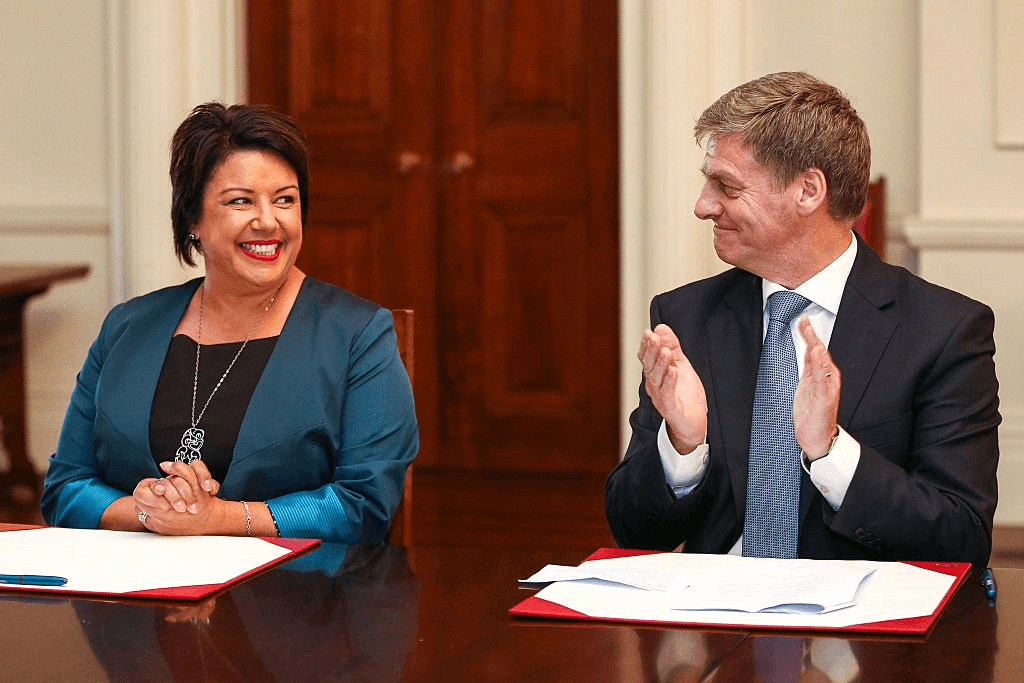The jungle drums are beating for a change at the top of the National Party. But, predicts Ben Thomas, a former advisor to a National minister, it’s not Bill English who should be worried.
It’s probably fair to say most readers of plucky Auckland-based internet start-up The Spinoff have no idea how conservative the National Party is.
Nicky Hager has popularised an image of the Tories doing business in darkened smoke-filled lounges, but real power within the National Party is just as likely to be ruthlessly wielded over a plate of asparagus rolls in a provincial sitting room or rugby clubroom.
Bill English said he didn’t remember meeting billionaire Peter Thiel, which is probably true, but he would be able to greet almost every delegate at a Southern Region National Party conference by name. His successor in Clutha Southland, Todd Barclay, assiduously cultivated relationships with Wellington press gallery journalists and Beehive staffers, but his downfall was ultimately set in motion by party ancients peeved he didn’t attend enough school prize-givings.
To a large extent the party is still run by people who not only don’t like flash Harrys, but actually use the phrase “flash Harrys” to describe the people they don’t like.
Leaks today speculating on a move against English, clearly timed for his state of the nation address, will not impress party grandees in the provinces who are influential through their electorate MPs, and who bristle at events playing out through the media.
There’s plenty of ambition in National’s bulging caucus, as English himself noted today. Many previous ministers – and optimistic backbenchers – have made no secret of their designs for higher office. However, when John Key stepped down and cleared the way for a new leader in December 2016, none of the so-called “next generation” raised their hands to contest the top job against English except Jonathan Coleman, in a moonshot that would have made RocketLab proud.
In part this was a reflection of Key’s control of the party and ability to anoint a successor, and in part a reflection of the suddenness of his departure.
English won respect and the right to choose his departure, but not the right to choose the next leader. And no-one wants to be caught by surprise again.
That’s very different from thinking a move against English is imminent.
Six years of destabilisation campaigns ensured a high turnover of Labour leaders between 2008 and 2014, but didn’t see any of the plotters actually reach the top – except David Cunliffe, an example few within National would be in a hurry to emulate.
The front-runner is likely Tauranga MP Simon Bridges, who has made a splash in his short months in opposition. However, as discussion moves from harmless hypotheticals to a focus on instability in the National caucus, showing too much overt ambition may be a miscalculation.
Amy Adams, another highly rated contender, appeared behind English at his state of the nation stand up, and endorsed the current leadership. They were joined by Chris Bishop, who was seen as a rallying point for overlooked backbenchers around the time of Key’s resignation.
Nikki Kaye, who most obviously represents “generational change” and like Bishop has won a traditionally Labour seat (and beaten Ardern twice), has no aspirations to replace English. It’s also unlikely Todd Muller will make a move this time around. While now in his late 40s, he is better connected with National’s asparagus-roll crowd than anyone else in the caucus.
What’s most noticeable in discussions about the future of the party leadership is not who is being discussed, but who isn’t. The shortlist of two years ago – Steven Joyce, Paula Bennett, Jonathan Coleman – is almost entirely ignored. There seems to a recognition their time is up.
While Coleman is blamed for mishandling the health portfolio, his prospects are just returning to baseline after he achieved a surprising but never sustainable level of support as a protest vote to succeed Key.
However, Joyce and Bennett’s fall from calculations reflects a collateral challenge to English.
Joyce and Bennett were installed by Key both as significant players in the Beehive and as campaign strategists. And while that seniority was important within the rigid hierarchy of government and the military-command environment of an election, in an opposition caucus without favours to dispense or budgets to approve they are merely two votes in a pool of 56.
If the rank and file of National’s caucus now feel a sense of restlessness it is not the result of freedom from English but from his lieutenants.
In particular, Bennett’s relationship to the over-reaching State Services Commissioner Peter Hughes ties her most closely to the release of Winston Peters’ personal information, which led to unexplained leaks and as much as anything seems to have damned National in post-election negotiations.
Her schtick – party bus singalongs, suggesting skits to liven up caucus – has worn thin.
Changing the deputy doesn’t shift the polls or win elections. It’s no panacea. The most obvious example from recent history is the widely feted promotion of Mt Albert MP Jacinda Ardern as deputy leader of Labour, replacing Annette King, which excited party activists but accompanied further plunges in the party’s polling.
Bennett is on a much shorter timer than English. But her downfall will start the official countdown to her leader’s departure.
This section is made possible by Simplicity, the online nonprofit KiwiSaver plan that only charges members what it costs, nothing more. Simplicity is New Zealand’s fastest growing KiwiSaver scheme, saving its 10,500 plus investors more than $3.5 million annually. Simplicity donates 15% of management revenue to charity and has no investments in tobacco, nuclear weapons or landmines. It takes two minutes to join.

